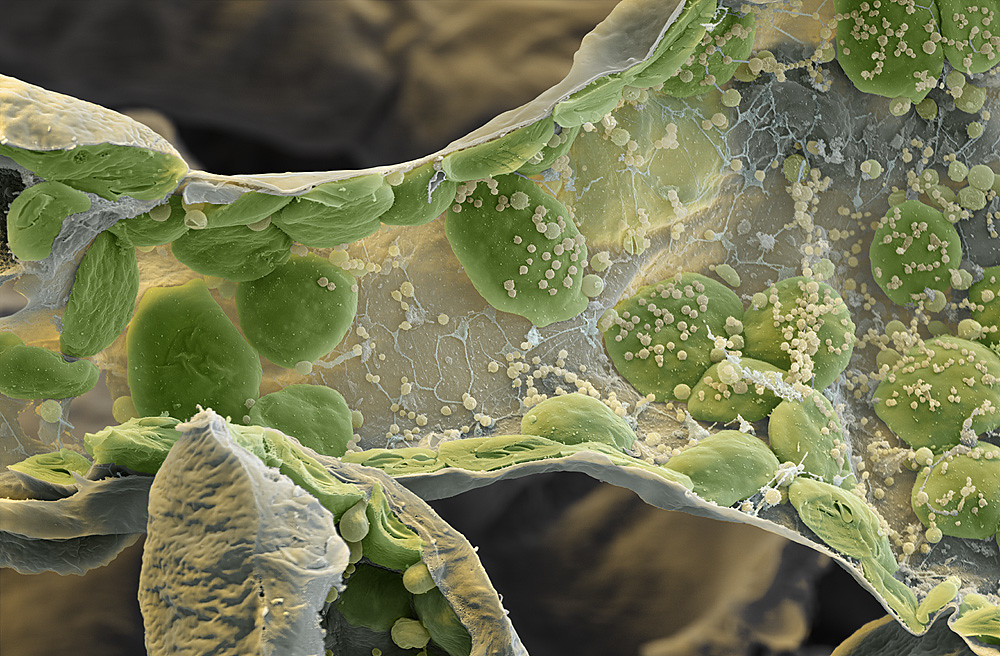View full details and apply via BBSRC >>
Background
Advanced research equipment and the development of capability in its creative use is a key component in maintaining the competitiveness of the UK research base. The RCUK Strategic Framework for Capital Investment ‘Investing for growth: Capital Infrastructure for the 21st Century’ explains the important roles of acquiring state-of-the-art equipment into the science base, and the rapid development of people skilled in its use.
The capital equipment budget for this call is approximately £10M.
Applications for mid-range equipment costing over the current OJEU threshold (currently £115k net of VAT and import duty, £138k inc VAT) must enhance the capability of the UK research base in areas of science in our remit (see 'Our portfolio' in related links). Applications will typically be from groups of researchers in one or more eligible institutions, for instrumentation to be deployed on a multi-project/multi-use basis.
Scope
This is a capital funding call; awards will only fund the purchase of equipment and limited installation costs. No resource or other associated costs may be requested, and funding for the costs of research using the equipment should be found through other project funding. Consequently, in order to ensure sustainable equipment usage, applicants need to demonstrate their potential for obtaining continued support, for example via a track record of successful competitive grant funding, or through host institution commitments.
We encourage:
- applications for equipment that is widely used and underpins capability in the priority areas in our refreshed strategic plan (although the call is open to all scientific areas within our remit)
- applications that seek to pioneer the use of emerging advanced research technology
- applications that seek to utilise equipment in novel applications
Our strategic plan recognises that 'biological discovery is increasingly being driven by ground-breaking technologies, such as high-throughput genomic and proteomic analysis and next generation biological imaging, that generate massive and complex datasets'. To support these technologies, requests for pipelines of associated technologies (e.g. automated high-throughput platforms or workflows) will be supported where they come together to form a connected whole, and where the total cost is over the OJEU threshold (the value of each individual component must also be over £10k).
Computing infrastructure proposals should address a need for resources (such as cloud or high-performance computing installations) for large-scale data analysis, e.g. genome assembly, metagenomics and real-time image analysis that build on existing BBSRC investment and funded research activity. Computing equipment may also be requested in support of advanced research technologies where the scale of the data generated will necessitate significant new computing/data management resources (the total cost of the equipment must be over the OJEU threshold and the value of each individual component must also be over £10k).
Applications may seek the costs of initial service maintenance contracts, where these can be purchased upfront as part of a package with the relevant equipment. If these are required, they should be itemised as part of the requested equipment costs and must be fully justified. Costs of service maintenance contracts will not be paid beyond the end date of any successful awards.
Effective and efficient use of research equipment and instrumentation is dependent on trained staff, particularly where equipment will be available to multiple users. The application must set out the arrangements for the technical support of the equipment and the professional development of the individuals involved, including access to training and sustainability of the technical staff in question. Commitments to staff posts for the running and maintenance of the equipment, as well as for the training of users (where applicable), should be provided in the form of host institution contribution(s). Provision of staff, support and training will form part of the assessment criteria. BBSRC may establish a network of such staff for the consideration of professional development issues and relevant individuals would be expected to participate.
Value for money will be an important factor in assessment. Consequently, whilst contributions from the host institution(s) and/or other external sources are not mandatory, they are strongly encouraged.
In accordance with the Wakeham recommendations to maximize the use of equipment and to encourage sharing, the arrangements for managing access to the equipment and the prioritisation of its use should be fully described. Award holders will be expected to put arrangements in place for providing advice and support to others wishing to assess the potential of the technology for their own research.
Collaboration and the extension of access to the instrumentation to industry and public sector users that would enhance the potential impact of research is encouraged, and any arrangements for this should be explained in the application.
Where more than one instrument of a similar type or application is funded through the 16ALERT call, or where a range of capabilities is established that are applicable to the same research field, we may expect grant holders to operate within a network to share expertise and coordinate access.
Applicants are asked to provide details of the institutional environment into which the equipment will be integrated (e.g. existing facilities and related equipment, housing, technical and scientific support staff, plans for on-going management and maintenance of equipment). Multidisciplinary applications, spanning the remits of more than one Research Council, may be considered if the majority of the research in which the equipment will be utilised falls within our remit. Applications where the majority of the research falls outside our remit will be rejected (see 'Our portfolio' in related links).
Applicants uncertain whether the science in their proposal is within our remit must contact us before submission. If an application contains components of proposed research that fall outside our remit, we may seek the advice of other Councils as part of the assessment process.
Eligibility
16ALERT is open to institutions and researchers normally eligible to apply to BBSRC managed-mode calls; this includes BBSRC approved HEIs, strategically funded institutes and Independent Research Organisations (IROs)
- Categories of eligible organisations can be found in section 3 of our grants guide (see downloads)
- A list of IROs can be found in the RCUK eligibility guidance (see external links)
Applications that include principal or co-investigators who are not eligible to apply for funding, and/or from ineligible organisations will be rejected.
A research organisation may submit more than one application; however there is a limit on the number of applications from an investigator or consortium. Details of limitations are in the call guidance.
How to apply
Applicants should refer to the call guidance (see application downloads below).
Applications must be submitted using the Joint Electronic Submission (Je-S) system (see external links) by 10 January 2017, 4pm.

![[Closes 24 Nov 2107] Apply now to the OpenPlant Fund!](https://images.squarespace-cdn.com/content/v1/54a6bdb7e4b08424e69c93a1/1509564315902-TUO4I6QRWI9TT8UGSIAJ/OpenPlantTwitter_400x400+%281%29.jpg)

![[Closes 7 Mar 2017] OpenPlant Research Associate (Haseloff Lab)](https://images.squarespace-cdn.com/content/v1/54a6bdb7e4b08424e69c93a1/1486552818859-FH76MCA8SMFU93WB85RX/OpenPlantTwitter_400x400.jpg)













